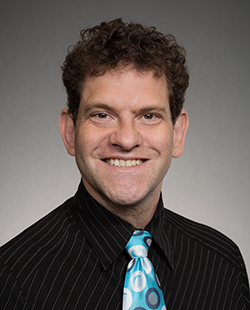
Treatment: Psychotherapies


Freda Liu
Personal Statement
My research focuses on strategies to improve pediatric mental health care quality, such as increasing measurement-based care–the use of patient/caregiver reported data to inform clinical-decision making. I also study the impact of quality improvement interventions on pediatric mental health service disparities with the goal of developing interventions to prevent or reduce such disparities and improving mental health care quality for all youths and families.
My clinical expertise includes Dialectical Behavior Therapy and Cognitive Behavior Therapy for teens and families to address a variety of mood and anxiety disorders as well as behavior problems and parent-child conflict. I provide parent training and consultation for managing young children’s anxiety and behavior problems. I am fluent in Mandarin Chinese.

Kristen Lindgren
Personal Statement
I am a Professor and Licensed Clinical Psychologist in the University of Washington’s Department of Psychiatry and Behavioral Sciences and am Board Certified in Cognitive and Behavioral Psychology. I received my Ph.D. in clinical psychology from the UW in 2006 and returned to UW as a faculty member in 2010.
My research interests include problematic substance use (including alcohol and marijuana), posttraumatic stress disorder (PTSD), identity and self-concept, and resilience. My work focuses on investigating implicit (i.e., non-conscious or automatic) cognitive processes and processes related to self-concept and identity that contribute to the development and maintenance of maladaptive behavior and psychopathology. A second line of my work focuses on developing and increasing access to briefer, effective interventions for individuals who are trauma-exposed. Support for my work has been provided by the National Institute on Alcohol Abuse and Alcoholism, the National Institute on Drug Abuse, and the University of Washington’s Garvey Institute for Brain Health Solutions and the Addictions, Drug & Alcohol Institute. I also serve as a consultant for dissemination projects aimed at training community-based mental health workers in Cognitive Processing Therapy and other evidence-based treatment for PTSD in locally, nationally, and internationally.
Arthur Lewy
Personal Statement
Dr. Lewy maintains a practice with immigrants and refugees at Harborview Hospital. Core practice specialties include assessment, forensics, disability, cross cultural psychology, and clinical child psychology. Core academic interests include anthropological and sociological perspectives on mental illness.

Mary Larimer
Personal Statement
I have been a member of the department faculty since 1995. My research and clinical interests include 1) prevention and treatment of alcohol and drug problems among adolescents and young adults (with a particular focus on college drinking prevention), 2) prediction of initiation of drinking and trajectories of alcohol and substance use during emerging adulthood, 3) co-morbidity of substance use with depression, suicide, trauma, PTSD, disordered eating, and gambling problems, 4) evaluation of housing and treatment programs for chronically homeless and incarcerated individuals and 5) dissemination of evidence-based prevention and treatment approaches into clinical, school, and work-site settings. I have published more than 100 articles and book chapters on these topics.

Daniel Krashin
Personal Statement
Dr. Daniel Krashin is an Assistant Professor at the University of Washington working in Psychiatry and Pain Medicine. He works with both inpatient and outpatient pain patients, clinics and hospital staff to collaborate on treatment of patients, but also works on improving systems of care delivery to benefit patients and populations across the continuum of care. Dr. Krashin has extensive experience working with underserved and vulnerable populations including the chronically mentally ill, recent immigrants, and HIV patients in the treatment of both psychiatric illness and chronic pain. He has lectured extensively and authored a number of publications in the areas of pain management, comorbid pain and psychiatric disorders, substance abuse in the setting of pain treatment, and pharmacology of opioids and other pain relieving medications. He works closely with residents and pain fellows and participates in teaching the future generations of psychiatrists, anesthesiologists, and pain providers. He is board certified in both Psychiatry and Pain Medicine.

Maria Monroe-DeVita
Personal Statement
My expertise is in implementation and services research related to evidence-based practices (EBPs) for adults with serious mental illness, particularly the Assertive Community Treatment (ACT) model. I am the lead author of the new ACT fidelity tool – the Tool for Measurement of Assertive Community Treatment (TMACT) – which has been widely disseminated nationally and in several other countries. I am also working to develop novel approaches to better addressing the needs of people with serious mental illness in the community. In 2010, I received a collaborative R34 from the National Institute of Mental Health (NIMH) to integrate another EBP, Illness Management and Recovery (IMR) within ACT. I am also working with a national team of clinicians, policymakers and researchers to develop better approaches to address the primary care needs of people with serious mental illness, including those served on ACT teams.
I have served as the Principal Investigator (PI) on several statewide implementation projects with the Washington State Division of Behavioral Health and Recovery, including the development, implementation, and fidelity assessment of 10 new ACT teams, and several IMR and Integrated Dual Disorder Treatment (IDDT) pilots across the state. I am also the PI of a statewide learning collaborative focused on implementation of cognitive behavioral therapy for psychosis (CBTp) for clinicians and supervisors across Washington State. I have an interest in implementation science and serve as a Co-Investigator of the Society for Implementation Research Collaboration (SIRC), an NIMH-funded grant focused on collaborative approaches to implementation research and the dissemination of those findings more broadly to those who implement and sustain EBPs. More recently, I began work collaboratively with a team of researchers to better address staff burnout prevention and the linkage to client outcomes.

Russell McCann

Barbara McCann
Personal Statement
I am interested in mood and anxiety disorders and the intersection of these with chronic medical illnesses. My approach to treatment is integrative. Working within a cognitive-behavioral framework, I use many traditional CBT methods, including hypnosis, mindfulness training, and concepts from third-generation cognitive and behavioral methods.
Sarah Kopelovich
Personal Statement
I am a clinical psychologist with specialized training in serious mental illness and forensic psychology. I specialize in evidence-based treatments for schizophrenia spectrum and other psychotic disorders. My clinical work and research converges on individual-, family-, and systems-level supports to optimize mental health care in both community and residential settings and reduce the likelihood of criminal justice system engagement among individuals with serious mental illness.
